Can Cats Grieve & How Do They Deal With A Loss Of A Friend?
24.11.2022.
Losing a friend, family member, or pet is a part of life, and we understand that this is how life works. When it comes to cats and dealing with the loss, things could be a little different. When one of our coworkers recently said that she lost her cat, the first question that popped into her mind was: "Do cats miss other cats?"
Our cats will have different perceptions about the loss, and they will certainly understand that something is happening, but if you are wondering: "Do cats grieve?" there could be more correct answers to this question. Ultimately, this will be an individual thing, and we will explain why.
Are cats emotional animals?
Many people often think cats don't have and don't show emotions, but this isn't true. There are many different ways for cats to show us how they feel. Some of them don't include what we would call traditional ways.
Our cats cannot tell us how they feel, but if we know how to read their body language and behavior, we can learn a lot. Cats can feel happy, sad, angry, nervous, and much more; the only thing is that they will show those emotions in different ways.
They are still social animals, and certain things and changes can greatly disrupt them.
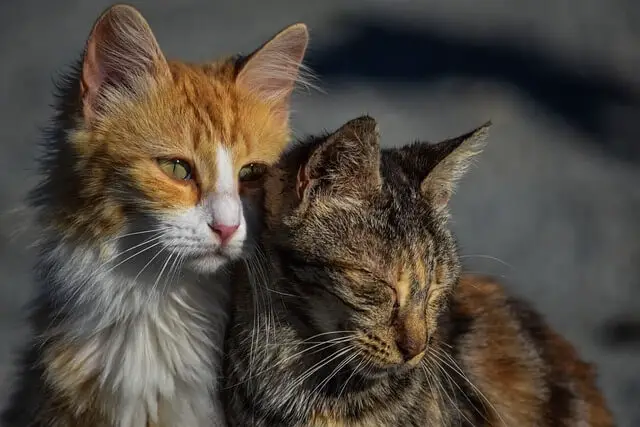
Do cats grieve?
Cats can create a strong bond with their humans and other family pets, no matter what people say that they are individual animals that don't like company.
When a loss occurs, your cat will show a different behavior, and while some will indeed grieve, others may just feel discomfort because of the changes in their routines.
Cats are capable of grieving; for some cats, losing a feline friend can leave a major mark on them. They can love, and losing someone they have been closely connected with can cause depression.
Other cats will notice that something is different. They will not exactly grieve for the lost friend but rather be annoyed because their routine has changed. The loss will for sure make some things different – she will not have someone to play with, mealtime could switch, etc.
So this will be an individual thing, and while some cats can grieve and feel sad because of the loss of a friend, others can be frustrated because the loss will indicate changes in their routine, and we all know that cat routine is a sacred thing for them.
What are the signs of grieving?
If a cat loses a pet friend or human, she could deal with the loss in many different ways. Many factors will indicate how your cat will accept that she lost her friend.
Based on our study, these are the things your cat could experience while dealing with the loss:
- Becoming depressed
- Refuse to eat food
- Decline any playtime invitation
- Hide under different things, including bed, and couch
- Asking for extra attention
- Have a generally sad appearance
- Changes in sleeping schedule
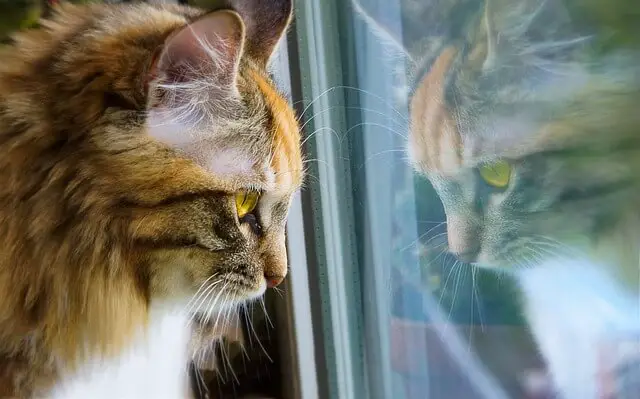
Individual cats will deal with the loss in their own way, the same way different humans deal with their loss. What is important here is to notice any signs indicating that your cat is grieving to help your cat.
How long can a cat grieve?
Grieving is an individual thing, and there is no correct answer to this question. While some cats only grieve for a few days, others can grieve for months. The best thing you can do for your cat is to provide her comfort and try not to disrupt her regular schedule.
In some cases, this will not help, and you will have to talk to your vet to help your cat deal with grieving.
How can I help my cat with grieving?
After you notice signs and symptoms that your cat is affected by losing its friend, you will have to step up to help your cat. There are a few things you can do to try and help your cat.
Don't be discouraged if the first thing doesn't work right away; you must understand that this is a hard time for your cat, and she will have to have your full attention.
To help your cat with grieving, you can
1. Spend time with your cat
The majority of cats will be more affectionate and will want to spend more time with you after the loss of their friend. Make sure to clear your schedule and spend as much time as it needs for your cat to be comfortable and happy.
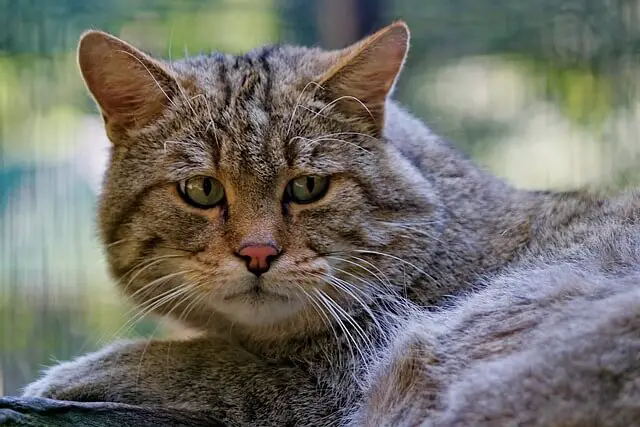
2. Don't change her routine
Cats are animals that love their routine. If your other pet has passed away, certainly, there will be some changes in the cat's routine, but you must make sure that those changes are slight. Try to maintain everything the same way as it used to be.
Allowing your cat to continue with her routine will make it a little easier for her to deal with the loss.
3. Set a playdate for your cat
Many owners have reported that bringing feline friends for a playdate made them forget about the loss just for a bit. You can also try this with your cat, and it might work.
4. Don't leave her alone
At this time, you shouldn’t leave your cat alone. Find someone who can keep your cat company if you need to go to work. That person doesn't have to necessarily entertain your cat but just be there, so your cat will not feel lonely.
5. Talk to your vet
If you tried everything and nothing seems to work, you should talk to your vet and see your next steps. Your vet could suggest using some meds to help your cat deal with this problem. Make sure to never medicate your cat on your own without consulting your vet first. By doing this, you can only create more problems for your cat.
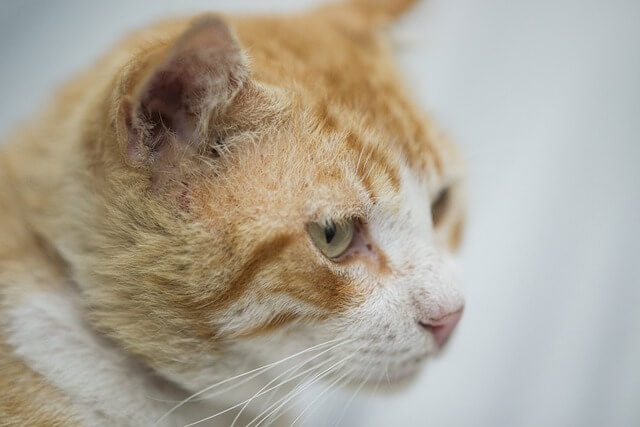
Are there any studies based on this?
Recently, we conducted a study that included 450 cats that were dealing with the loss of their pet friend, and this is what the study has shown
- 95% of cats were showing signs of grieving, while the other 5% didn't show any signs that indicated they were dealing with the loss of their friend
- 65% of cats become more affectionate and wanted to spend more time with their owners than usual
- 15% of cats took it really hard, and most of their time they spent under the bed hiding
- More than 50% of cats had changes in their eating habits – some refused the food, while others were eating a lot more loss than usual
- The majority of cats have shown at least one behavior change during this time
- For about 30%, setting a playdate proved to be successful
- Less than 5% of cats showed clinical signs of depression
World Cat Finder Team

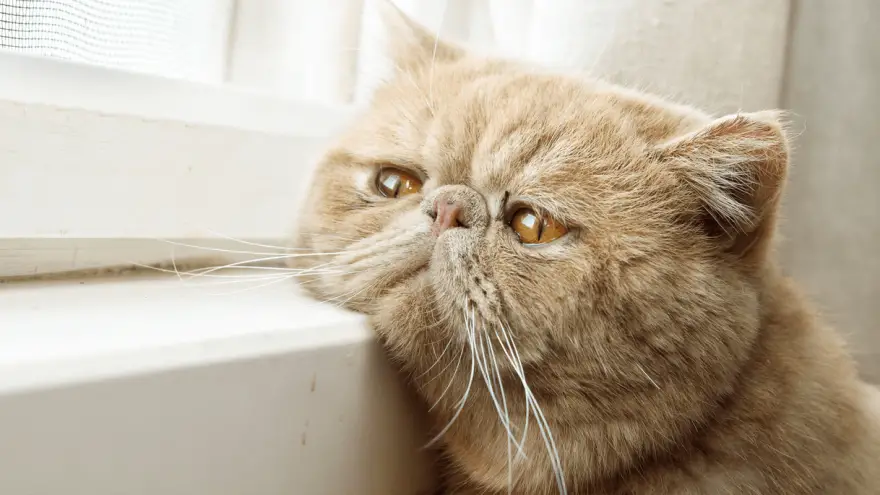
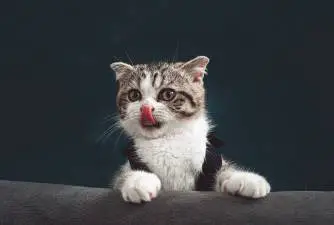
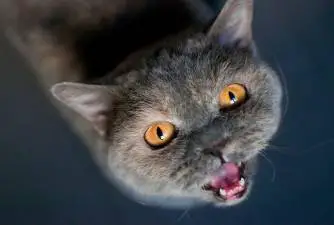
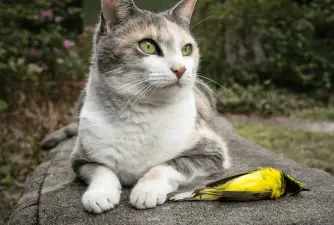
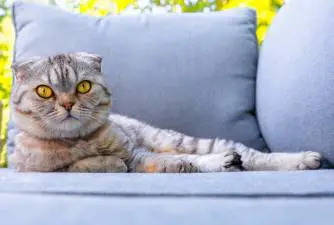

Share